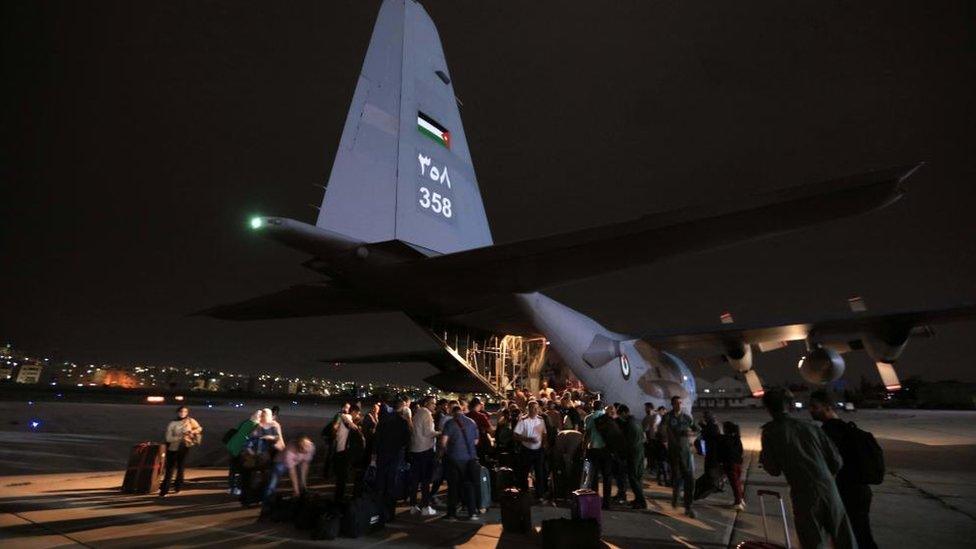Sudan violence: Family must 'move today' to escape fighting
- Published
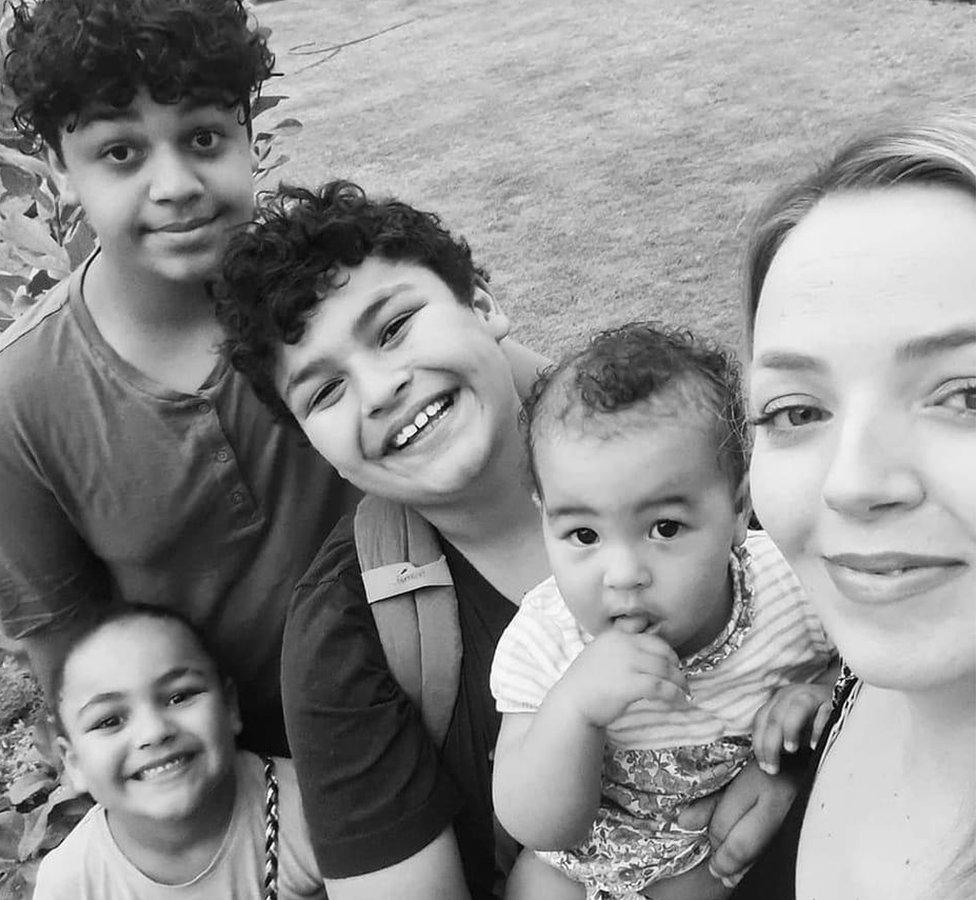
Donald Gillies' niece Jennifer is in Khartoum with her four children
A Scottish teacher stranded in Sudan with her husband and four children must leave her home today, with or without help from the UK government.
Jennifer McLellan is awaiting contact from officials as the UK begins a "large-scale" complex evacuation of British people from the country.
But her uncle, Donald Gillies, said they had a back-up plan so they could escape within the next 24 hours.
Rival military factions agreed to a 72-hour ceasefire from Monday night.
At least 400 people have been killed in fighting since 15 April.
On Tuesday Prime Minister Rishi Sunak confirmed families with children, the elderly and people with medical conditions will be prioritised on RAF flights leaving from an airfield near the capital Khartoum.
Downing Street later said the first flight carrying British nationals had left Sudan and confirmed two more were planned overnight.
The Foreign Office is advising stranded Brits to head to an airfield north of the capital where they will be flown by the RAF to Cyprus before returning to the UK.
Around 4,000 UK citizens are thought to be in Sudan and 2,000 of them have already requested help, Foreign Office minister Andrew Mitchell said on Monday.
Only British passport holders and their immediate family with existing UK entry clearance are eligible, the government has said.
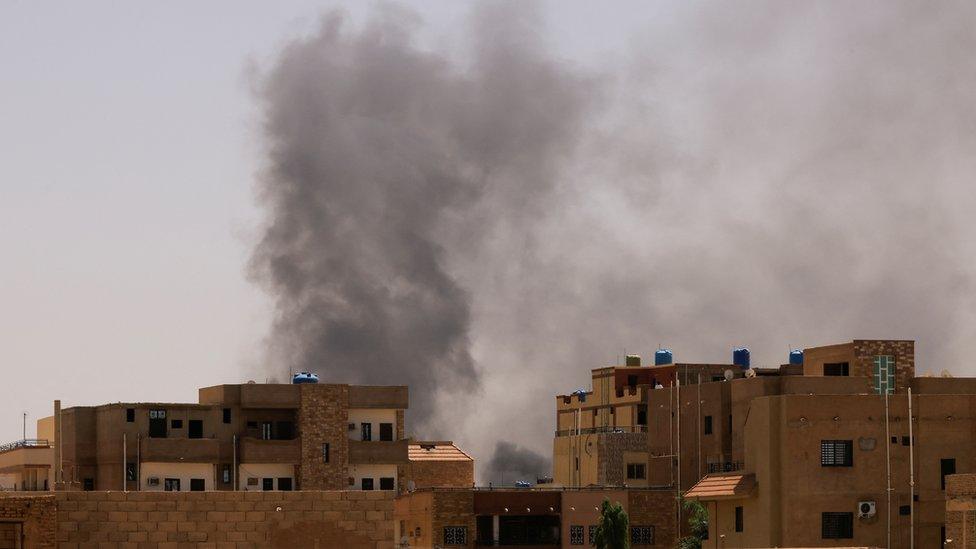
Smoke seen rising from buildings in Khartoum
Mr Gillies, from Islay, said his niece was facing a race against time.
He told BBC Radio's Good Morning Scotland programme: "There is a back up plan if the government don't move today.
"We feel she is going to have to move today because the situation could descend and they're right in the heart of where the fighting will come to.
"So she has to be prepared to move either way.
"We are hoping the military will go and get them and take them to the airport."
Mr Gilles confirmed Jennifer had received text contact from UK officials but was awaiting a phone call.
He added he had been in contact with his niece during the night and she was safe and "in good spirits".
But Mr Gillies criticised the UK government's response to the crisis as "shameful" and said it had been jolted into action by media coverage.
He said: "There has been a full military effort for the government staff but not the civilians that have been left behind feeling abandoned at the moment."
Mr Gillies previously told how Jennifer went to her teaching job one day and the next day the airport was bombed.
On Monday he described his niece's situation as "pretty desperate" and said the family were running low on food and water.
Romisa Albashir, from Aberdeen, has family in Sudan and has spoken of her worry for them
Romisa Albashir told Good Morning Scotland her family in Sudan had experienced the full horror of the conflict.
Ms Albashir, who lives in Aberdeen, said: "A friend of my uncle's a few days ago, for example, was going in to the one hospital that was still open.
"He was going in for dialysis. He got shot dead in the hospital.
"This is someone I have known since I was a wee girl. That's the situation they are living in."
She last spoke to her relatives two days ago due to problems with phone signals and internet coverage and added: "It's just such a dire situation."
Ms Albashir also admitted she was "full of survivor's guilt" and revealed her brother would have been in the country last week had his flight not been cancelled in Qatar
Watch: Gunfire reaches house of Brit visiting Sudan
On Monday a terrified Scottish family told of gunshots at their door as they tried to flee the violence in Sudan.
Amar Osman from Dunfermline was with his wife Fatma Giha in Omdurman, near Khartoum, when the crisis started.
The couple started their journey back to Scotland on Tuesday after making their own arrangements as they had yet to hear from the UK government.
Mr Osman is also travelling with his mother, mother-in-law and sister-in-law.
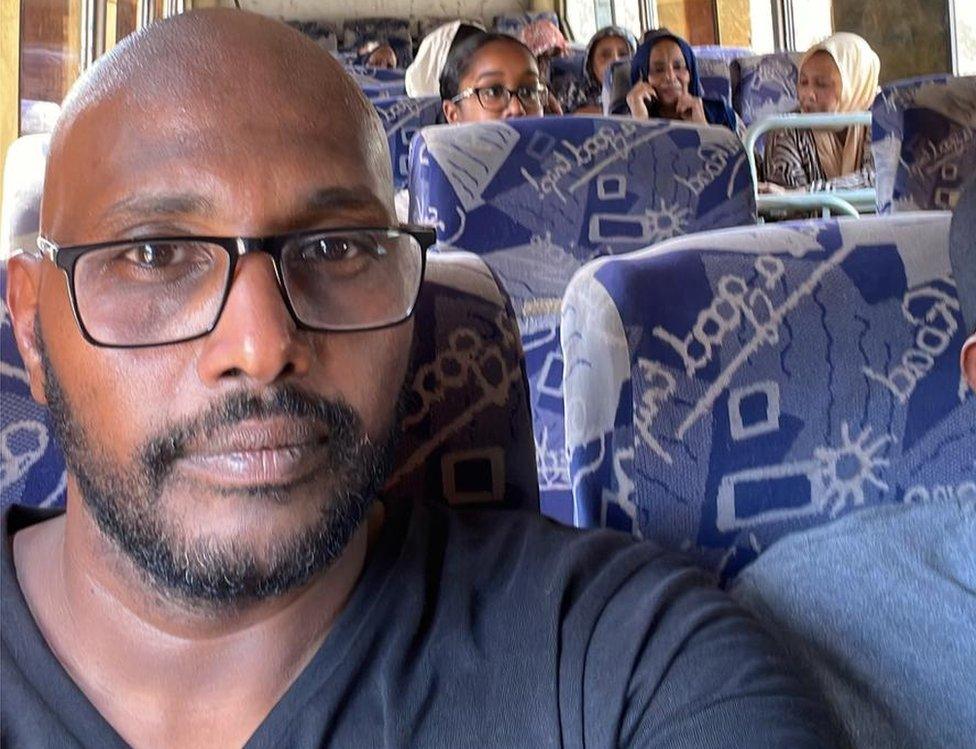
Amar Osman and his family have made their own travel arrangements to return to Scotland from Sudan
From an initial estimate of 25,000 Sudanese Pounds (£34) they were told the cost could soar to 400,000 Sudanese Pounds (£551).
It will involve travelling by coach to Egypt and negotiating two borders which both have reported delays of up to 13 hours.
Speaking from north Khartoum, he told BBC Scotland: "It will be three or four days before we get to Aswan."
The father-of-three travels to the country every year but, before leaving, he told BBC Scotland: "The sad thing is I don't know when I will be back here again."
Meanwhile, a small rally to raise awareness of the conflict is being held outside the Scottish parliament.
Representatives of the Sudanese communities in Edinburgh, Glasgow, Aberdeen and Dundee have also emailed a letter to First Minister Humza Yousaf which calls on Scotland and the UK to act faster in response to the crisis.
Among those in attendance was Mr Osman's daughter, Shereen.

Mr Osman's daughter, Shereen, was among those who attended the rally outside Holyrood
She said the situation was "terrifying" but she was holding out hope of having her father home to celebrate his 50th birthday next month.
A power struggle between Sudan's regular army and a powerful paramilitary force has led to violence across the country for more than a week.
Electricity is scarce and food and water supplies are running out for many.
The UK government evacuated embassy staff in an operation at the weekend.
Scotland's External Affairs Secretary Angus Robertson wrote to the foreign secretary calling for eligibility criteria to be eased to enable Sudanese citizens to be reunited with family already in the UK.
He also suggested the evacuation of non-British nationals who have worked for UK interests in Sudan.
Related topics
- Published25 April 2023
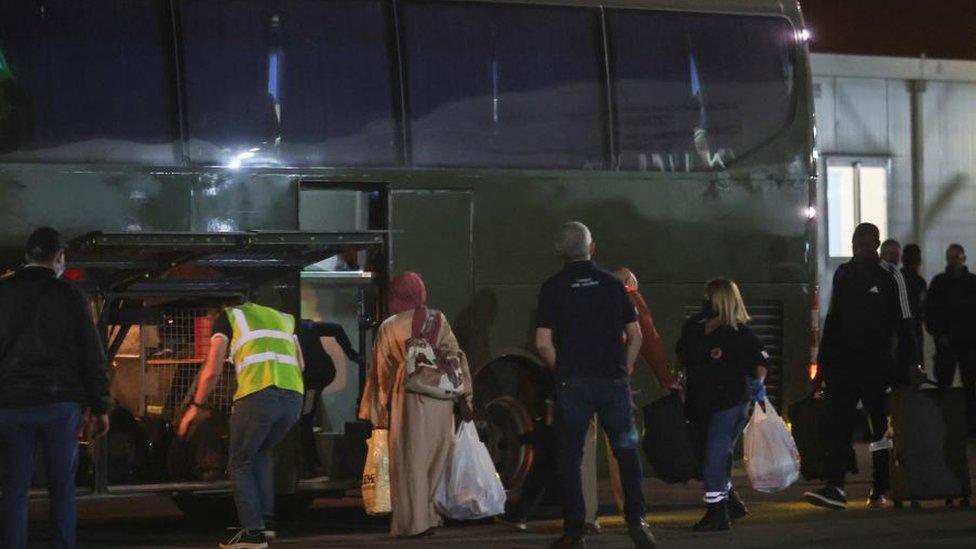
- Published24 April 2023

- Published24 April 2023
